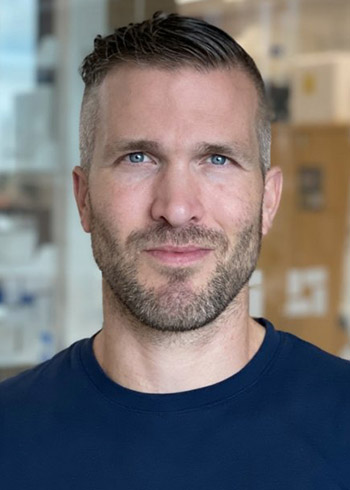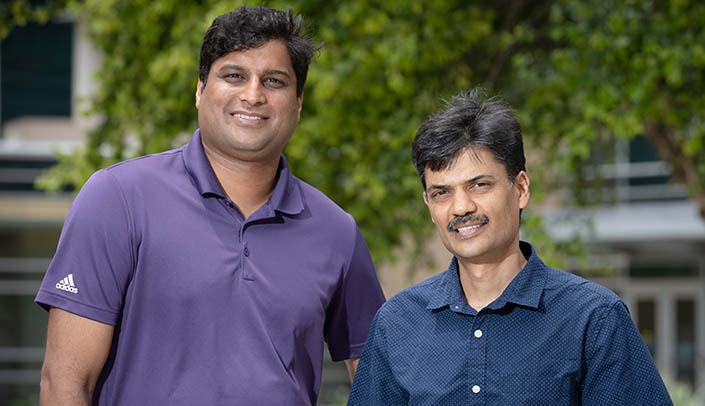UNMC’s Channabasavaiah Gurumurthy, PhD, and Rolen Quadros have collaborated in a groundbreaking study released by a team of researchers at Karolinska Institutet that sheds light on what is sometimes called “the sixth sense.”
The study, published Monday in Nature Communications, revealed a large diversity of proprioceptive neurons and unveiled a new type of plasticity — suggesting neuronal individuality in the nervous system to adapt its performance to changing environment, or, in layman’s terms, how neurons switch their identity to better respond to your need after sustained training.
 |
Francois Lallemend, PhD |
“Proprioception also is called the sixth sense and is inextricably linked to movement and motor coordination by providing essential sensory feedback to the central nervous system about the activation state of all our skeletal muscles,” said Francois Lallemend, PhD, associate professor at the institutet’s department of neuroscience and lead investigator of the study.
In the study, the researchers show that the sensory feedback of all our body movements is executed by diverse types of neurons with distinct intrinsic properties, muscle targets and capacity to adjust their relative abundance by switching cell identity in response to changing motor activities.
Such new type of plasticity alludes neuronal individuality in the nervous system that might correlate with performance in sensory processing functions and eventually individual behavioural differences, which has great potential for therapeutic purpose.
In order to explore specific neurons over the course of the study, researchers turned to Dr. Gurumurthy, who used Easi-CRISPR technology to design and create a key mouse model needed for the study.
“Genetically engineered mouse (GEM) models offer us one of the most sophisticated tools for studying complex biological processes such as the one described in this study,” Dr. Gurumurthy said. “Specifically, technologies like Easi-CRISPR can be used to precisely alter any given gene to create custom GEM models. Such models can be bred with other GEM models to turn-on or turn-off specific gene/s in a specific tissue.
“We created the model for Dr. Lallemend’s research work that could be used in several different types of studies to understand how nervous-system/brain functions. Dr. Lallemend’s laboratory used seven other models and bred them in different combinations to understand the complex process of proprioception.”
The study’s revelations, including an unexpected plasticity in the peripheral nervous system in response to changing activities in adult life (in the form of a switch of cell identity following sustained motor activities), will influence research in other fields of neuroscience and medical studies on sensory plasticity in perceptual adaptations and disorders, Dr. Lallemend said.
“We continue to investigate the role of this neuronal diversity but also of such plasticity in motor performance with the aim to manipulate it pharmacologically and eventually test its impact on sensorimotor capacities in behaving animals,” Dr. Lallemend said.
Howard Gendelman, MD, chair of the UNMC Department of Pharmacology and Experimental Neuroscience, called Dr. Gurumurthy and Quatros’ work amazing.
“The contribution on single cell analysis of neuronal subpopulations by itself is a major advance for the field of adaptive proprioception, making it a substantive contribution for neuroscience research,” Dr. Gendelman said. “Rolen and Guru are certainly to be congratulated for their skill sets in generating these animals for such a study.
“However, what stands out beyond the scientific advances are the broad collaborations amongst the very best scientists, the breadth of inquiries offered and the truly incredible impactful research made — Bravo!” he said.

Congrats to Guru and Rolen on this great accomplishment! You make us proud.